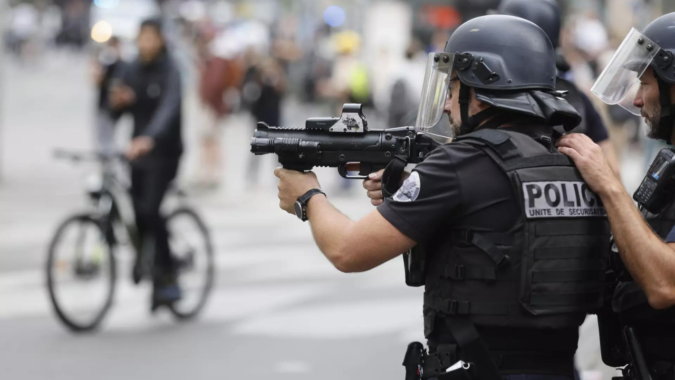For years, French police unions argued that officers should get broader discretion over when to shoot at fleeing motorists. Time and again, lawmakers refused. Finally in 2017, after a string of terrorist attacks, the government relented. Lawmakers passed a bill allowing officers to fire on motorists who flee traffic stops, even when the officers are not in immediate danger.
Since that law passed, the number of fatal police shootings of motorists has increased sixfold, according to data compiled recently. Last year, 13 people were shot dead in their vehicles, a record in a country where police killings are rare.
Several lawmakers have called for a repeal or revision of the law. Some union leaders say training on what it permitted was woefully inadequate. “We received no training whatsoever,” Frederic Lagache, a leader of police union Alliance Police said. He and other officers interviewed said their classes had been mostly online like video tutorials and covered theoretical topics that failed to capture field realities.
“We have colleagues who open fire because they’re convinced that they’re protected under the law, when they’re not,” said Yves Lefebvre, a union leader. “There’s inevitably some collateral damage.”
In the past, French police were allowed to fire on vehicles only when the officers were in immediate danger. But police unions argued that they should have broader authority to fight crime and rules that matched those of the gendarmerie, a French police force with military status. Now, police can fire when they believe motorists are likely to endanger lives while fleeing. Officers may use their weapons in cases of “absolute necessity and in a strictly proportionate manner.” Lawyer Laurent-Franck Lienard said the officer involved in this week’s shooting, whom he represents, “shot within the framework of the law.”
Politicians called for a review of the law. And an editorial in Le Monde, one of France‘s leading newspapers, called for changes to the law.
Since that law passed, the number of fatal police shootings of motorists has increased sixfold, according to data compiled recently. Last year, 13 people were shot dead in their vehicles, a record in a country where police killings are rare.
Several lawmakers have called for a repeal or revision of the law. Some union leaders say training on what it permitted was woefully inadequate. “We received no training whatsoever,” Frederic Lagache, a leader of police union Alliance Police said. He and other officers interviewed said their classes had been mostly online like video tutorials and covered theoretical topics that failed to capture field realities.
“We have colleagues who open fire because they’re convinced that they’re protected under the law, when they’re not,” said Yves Lefebvre, a union leader. “There’s inevitably some collateral damage.”
In the past, French police were allowed to fire on vehicles only when the officers were in immediate danger. But police unions argued that they should have broader authority to fight crime and rules that matched those of the gendarmerie, a French police force with military status. Now, police can fire when they believe motorists are likely to endanger lives while fleeing. Officers may use their weapons in cases of “absolute necessity and in a strictly proportionate manner.” Lawyer Laurent-Franck Lienard said the officer involved in this week’s shooting, whom he represents, “shot within the framework of the law.”
Politicians called for a review of the law. And an editorial in Le Monde, one of France‘s leading newspapers, called for changes to the law.
